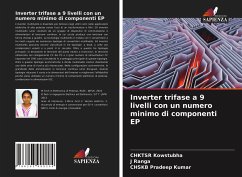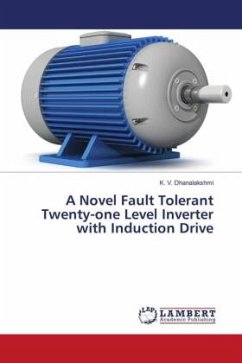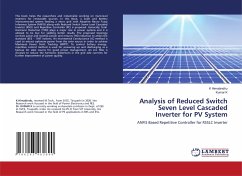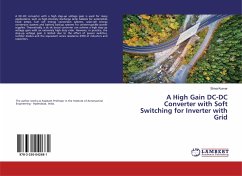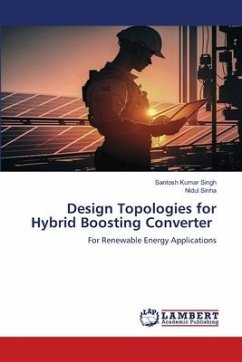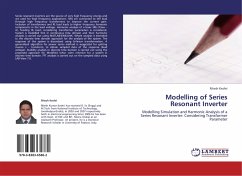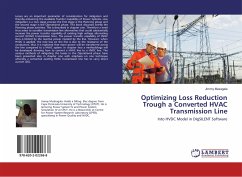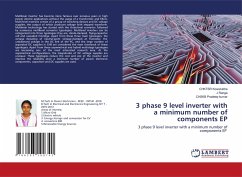
3 phase 9 level inverter with a minimum number of components EP
3 phase 9 level inverter with a minimum number of components EP
Versandkostenfrei!
Versandfertig in 6-10 Tagen
27,99 €
inkl. MwSt.

PAYBACK Punkte
14 °P sammeln!
Multilevel inverter has become more famous over previous years in high power electric applications without the usage of a transformer and filters. Multi-level inverters consist of a group of switching devices and DC voltage supplies, the output of which produces voltage with stepped waveform. Multilevel technology has started with the three-level converter followed by numerous multilevel converter typologies. Multilevel inverters can be categorized into three typologies they are, diode-clamped, flying-capacitor cell and cascaded H-bridge. Apart from these three main typologies, the voltage dev...
Multilevel inverter has become more famous over previous years in high power electric applications without the usage of a transformer and filters. Multi-level inverters consist of a group of switching devices and DC voltage supplies, the output of which produces voltage with stepped waveform. Multilevel technology has started with the three-level converter followed by numerous multilevel converter typologies. Multilevel inverters can be categorized into three typologies they are, diode-clamped, flying-capacitor cell and cascaded H-bridge. Apart from these three main typologies, the voltage deviating of neutral-point voltage-clamped at Transistor, the unbalanced voltage in the DC link of the PC, and the large number of separated DC supplies in CHB are considered the main drawback of these typologies. Apart from these asymmetrical and hybrid multistage typologies are becoming one of the most interested research area. At the asymmetrical configurations, the magnitudes of DC voltage supplies are unequal. These typologies reduce the cost and size of the inverter and improve the reliability since a minimum number of power electronic components, capacitors and DC supplies are used.



